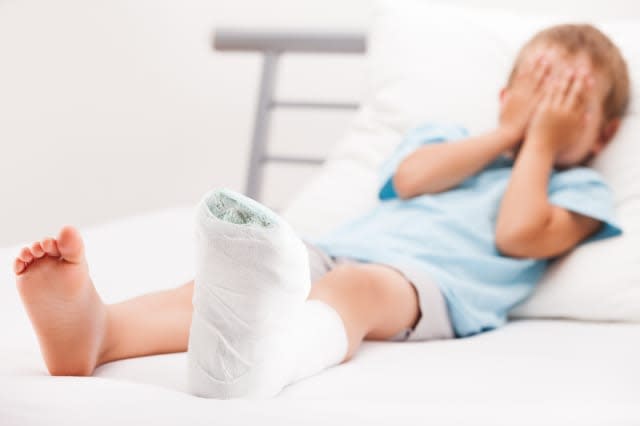If a child falls off your swing it could cost you £100k

Some children are accidents waiting to happen. Every other sentence spoken by their parents begins with a word like 'careful...' 'stop...' or 'watch...', and yet they end the day with a whole new set of cuts and bruises. So it's not particularly surprising that Direct Line's research shows that 3.9 million people in the UK say a child has been injured while playing at their house at some point in the past 12 months.
What is surprising is that an increasing number of parents are choosing to sue for damages.
The risk
Three in five adults have no idea that they could be sued as a result of an injury sustained to a child on their property. There's also a pretty good chance that of the two in five who know it's theoretically a possibility, most of them assume it would never happen.
However, Direct Line says it has seen the number of claims for personal injury to children soar in recent years. In some instances those claims are for as much as £100,000, which would mean most parents would have to sell their house to pay the bill if they were found to be at fault.
What can you do?
You can try to mitigate the risks. The most common reasons for claims appear to be when children are injured on bouncy castles, trampolines and rope swings, so you could stop any guests from using this kind of equipment.
Direct Line also found that one in five injuries to children involve six-year-olds - making this the most dangerous age - followed by five-year-olds and seven-year-olds. Parents could choose to keep all children off the premises until they hit the age of eight, or they could insist that their parents stay whenever they come to play.
Alternatively you can watch them like a hawk. Unfortunately this isn't going to help much, because in four of five cases, children are under supervision when an accident happens.
There was a trend a few years ago for parents in the US to ask parents to sign a waiver before sending their child over on a playdate. Lawyers have argued that this isn't a bad idea. It makes it clear that all the parents involved know that all houses have risks, and that nobody will sue if anything goes wrong.
However, that's likely to seem a bit extreme, and could backfire on your child. When the Washington Post asked their parenting expert how to respond to a request for a waiver, she said she would sign it and then never send the child round to play there again.
It's worth, therefore, checking whether your home insurance covers public liability as standard, and the limits on that liability.
It seems like the kind of cover we would only need in America. However, Direct Line insists this is a very real risk, and it's important to take steps to protect yourself. If your children have the kinds of friends who see every trampoline as a launch pad, and every playdate as an opportunity to break their collarbone, then you'll know exactly what they mean.
But what do you think? Do you know any parents who would sue - and would you sue if your child was hurt at someone else's house? Let us know in the comments.
Family stories on AOL Money
Shocking financial gender divide - women have given up
Singletons dangerously naive over partner's debts
The best places to bring up kids in the UK




